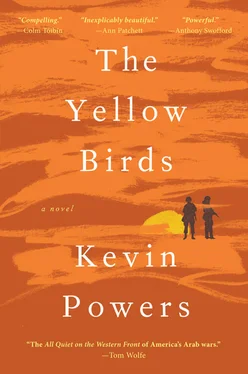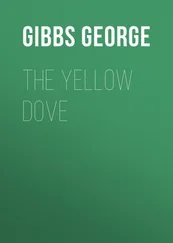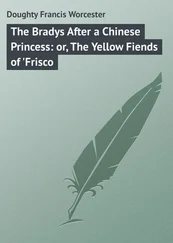And they did come, shadowed in windows. They came out from behind woven prayer rugs and fired off bursts and the bullets whipped past and we’d duck and listen as they smacked against the concrete and mud-brick and little pieces flew in every direction. They ran through trash-strewn alleys, past burning drums and plastic blowing like clumps of thistle over the ancient cobblestones.
Sterling yelled a long time that day before I squeezed the trigger. My ears had already rung out from the noise and the first bullet I released into the field seemed to leave my rifle with a dull pop. It kicked up a little cloud of dust when it hit and it was surrounded by many other little clouds of dust just like it.
Rounds by the hundreds shook dust off the ground, the trees and buildings. An old car crumpled and collapsed beneath the dust. Once in a while, someone ran between the buildings, behind the orange and white cars, over the rooftops, and they’d surround themselves with little clouds of dust.
A man ran behind a low wall in a courtyard and looked around, astonished to be alive, his weapon cradled in his arms. My first instinct was to yell out to him, “You made it, buddy, keep going,” but I remembered how odd it would be to say a thing like that. It was not long before the others saw him too.
He looked left, then right, and the dust popped around him, and I wanted to tell everyone to stop shooting at him, to ask, “What kind of men are we?” An odd sensation came over me, as if I had been saved, for I was not a man, but a boy, and that he may have been frightened, but I didn’t mind that so much, because I was frightened too, and I realized with a great shock that I was shooting at him and that I wouldn’t stop until I was sure that he was dead, and I felt better knowing we were killing him together and that it was just as well not to be sure you are the one who did it.
But I knew. I shot him and he slumped over behind the wall. He was shot again by someone else and the bullet went through his chest and ricocheted, breaking a potted plant hanging from a window above the courtyard. Then he was shot again and he fell at a strange angle — backward over his bent legs — and most of the side of his face was gone and there was a lot of blood and it pooled around him in the dust.
A car drove toward us along the road between the orchard and the field of dead. Two large white sheets billowed from its rear windows. Sterling ran to the other side of the building, where the machine gun was set up. I looked through my scope and saw an old man behind the wheel and an elderly woman in the back passenger seat.
Sterling laughed. “Come on, motherfuckers.”
He couldn’t see them. I’ll yell, I thought. I’ll tell him they are old, let them pass.
But bullets bit at the crumbling road around the car. They punched into the sheet metal.
I said nothing. I followed the car with my scope. The old woman ran her fingers along a string of pale beads. Her eyes were closed.
I couldn’t breathe.
The car stopped in the middle of the road, but Sterling did not stop the shooting. The bullets ripped through the car and out the other side. The holes in the car funneled light, and the smoke and dust hung in the light. The door opened and she fell from the old car. She tried to drag herself to the side of the road. She crawled. Her old blood mixed with the ash and dust. She stopped moving.
“Holy shit, that bitch got murdered,” Murph said. There was no grief, or anguish, or joy, or pity in that statement. There was no judgment made. He was just surprised, like he was waking from a long afternoon nap, disoriented, realizing that the world has continued uninterrupted in spite of the strange things that may have happened while you slept. He could have said that it was Sunday, as we did not know what day it was. And it would have been a sudden thing to notice that it was Sunday at a time like that. But he spoke the truth either way, and it wouldn’t have mattered much if it had been Sunday, and since none of us had slept in a long time, none of it really seemed to matter much at all.
Sterling sat down behind the wall next to the machine gun. He waved us to him and took a piece of pound cake from the cargo pocket on his trousers as we listened to the final bursts of nervous firing peter out. He broke the dry cake into three pieces. “Take this,” he said. “Eat.”
The smoke rose and began to disappear. I watched the old woman bleed on the side of the road. The dust blew in languid waves and began to swirl slightly. We heard shots again. Beyond a building a small girl with auburn curls and a tattered sundress stepped out toward the old woman. Errant bullets from other positions kicked up the dust around her in dry blooms.
We looked to Sterling. He waved us off. “Someone get on the net and tell those fuckers it’s a just a kid,” he said.
The girl ducked behind the building, then emerged again, this time shuffling toward the old woman very slowly. She tried dragging the body, and her face contorted with effort as she pulled the old woman by her one complete arm. The girl described circles into the fine dust as she paced around the body. The path they made was marked in blood: from the car smoking and ablaze, through a courtyard ringed by hyacinths, to the place where the woman lay dead, attended by the small child, who rocked and moved her lips, perhaps singing some desert elegy that I couldn’t hear.
The ash from the burning of clay bricks and the fat of lean men and women covered everything. The pale minarets dominated the smoke, and the sky was still pale like snow. The city seemed to reach upward out of the settling dust. Our part was over, for a while at least. It was September and though there were few trees from which leaves could fall, some did. They shook off the scarred and slender branches, buffeted by the wind and light descending from the hills to the north. I tried to count the leaves as they fell, removed from their moorings by the impact of mortars and bombs. They shook. A thin sheaf of dust floated off each one.
I looked at Murph and Sterling and the rest of the platoon on the roof. The LT walked to each of us and put his hand on our arms, speaking softly, trying to soothe us with the sound of his voice, the way one would with frightened horses. Perhaps our eyes were wet and black, perhaps we bared our teeth. “Good job,” and “You’re OK,” and “We’re gonna be OK,” he said. It was hard to believe that we’d be OK and that we’d fought well. But I remember being told that the truth does not depend on being believed.
The radio came on again. Before long the LT would give us another mission. We would be tired when the mission came, but we would go, for we had no alternative. Perhaps we’d had them once: alternatives, other paths to take. But our course was certain then, if unknown. It was going to be dark before we knew it. We had lived, Murph and me.
I try so hard now to remember if I saw any hint of what was coming, if there was some shadow over him, some way I could have known he was so close to being killed. In my memory of those days on the rooftop, he is half a ghost. But I didn’t see it then, and couldn’t. No one can see that. I guess I’m glad I didn’t know, because we were happy that morning in Al Tafar, in September. Our relief was coming. The day was full of light and warm. We slept.
Fort Dix, New Jersey
Mrs. LaDonna Murphy, rural mail carrier, would have only needed to read the first word of the letter to know that it had not been written by her son. The truth is, she had not received all that many letters from him, so when I wrote it, I took a guess that she might not have that much to compare it to. He’d rarely been more than a few miles away from her during the first seventeen years of his life. About five miles, depending on where Daniel was, when she reached the farthest stop on her mail route if measured as the crow flies. Seven, if we allow for depth, at midnight, during those three months he worked in the Shipp Mountain Mine after he graduated from the Bluefield Vocational and Technical School. Then on to Benning in the fall, the farthest he’d ever been from home, where Daniel would write her a few short notes before lights-out, scrawling out his thoughts about the redness of the clay, the pleasure he took in sleeping under those endless Georgia stars and, when time allowed, making space for the assurances that boys like me and Daniel always end up sending to our families, assurances that were as much for us as for them. The rest of his life he’d spent with me. Ten months, give or take, from the time he appeared next to me in formation that day in New Jersey with the snow so high over our boots that our left and right faces made only a whisper in the snow. Ten months, give or take, from that day to the day he died. It might seem like a short time, but my whole life since has merely been a digression from those days, which now hang over me like a quarrel that will never be resolved.
Читать дальше












